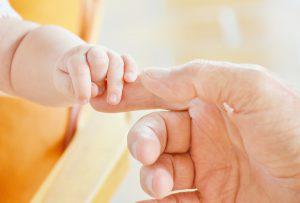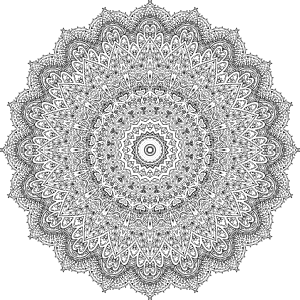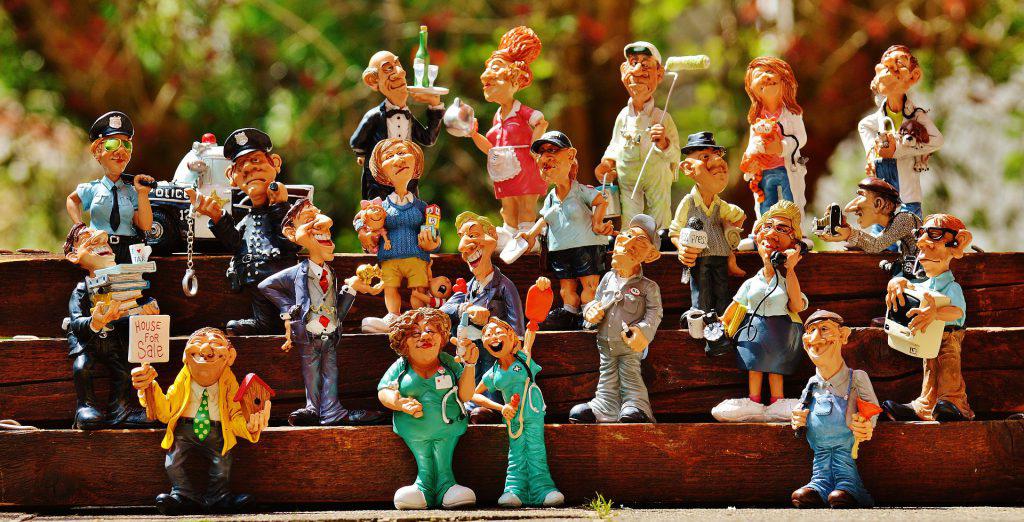The 7 pillars of mindfulness #4 Trust
The 7 pillars of mindfulness – #4 Trust
„Faith is an oasis in the heart which will never be reached by the caravan of thinking.“ – Khalil Gibran
Trust is learned behavior
 Trust is the subjective certainty, that one can rely on someone, on ourselves (self-confidence), or on something. Trust is likewise the faith in a presumed reliability, ability and / or virtue. Trust is a voluntary advance on account of assumed and expected attitudes and behaviors. We are influenced in our trust by our internalized experiences and values. Trust is learned behavior and trust is a decision!
Trust is the subjective certainty, that one can rely on someone, on ourselves (self-confidence), or on something. Trust is likewise the faith in a presumed reliability, ability and / or virtue. Trust is a voluntary advance on account of assumed and expected attitudes and behaviors. We are influenced in our trust by our internalized experiences and values. Trust is learned behavior and trust is a decision!
On the one hand, the so-called “basic trust” is one of the pillars of self-esteem. We learn it during early childhood in the unconditionally accepting reflection of our primary caregivers. We learn that people treat us with benevolence. And if we learned early on, that we can repeat success, based on our ability and that the majority of people reward trust, we will remain trusting later.
Anyone who trusts willingly and confidently, assumes that things will develop as promised or hoped for. Whether that actually happens, is of course another matter. This try-and-error-process creates an inner knowledge, an inner instance with its own individual voice. If we are convinced, that we do not have to meet any media-compatible ideal or unreflected demands from outside, we can develop trust in ourselves. This self-confidence is necessary, if we want to achieve a change in our behavior. We have to trust that we can handle the change in the first place, and we have to be convinced, that the change will be profitable for us. (Assessing a risk associated with behavior has the least to do with successful change.) Why is that? Have you ever been annoyed by children, partners, friends or colleagues behaving unreasonably, against better knowledge, e.g. B. regarding spending pocket money or smoking behavior? Habits, like trust, create a sense of stability. They are rooted in internalised values from caregivers to whom we are committed, and they are woven into our identity. If we change our behavior we have to give up a lot. First, we question habits, that have an advantage for us, that is why they became habits in the first place. We forego this known benefit in favor of another, just envisioned benefit, at the price of the effort of change itself. Secondly, we have to do without the part of our identity, that corresponds to old habits. And third, we have to forego certain sides of our loyalty that are linked to the values which support our old habits derive. This is the biggest obstacle because disloyalty to parents, family members and other caregivers creates the fear of losing their confirmation as a source of our self-worth. Hence, unless we gain a significant benefit from a new behavior, we are unlikely to make any change at all. None of this has anything to do with “reason”, everything has to do with trust and fear of loss. It is therefore rather surprising if people let themselves be successfully determined by reason to change their behavior. Confidence in the well-known behavior patterns emotionally weighs much more, and it is often not conscious.
The higher the IQ, the more trust. 
This is the result of a study by Oxford University. Of course, this does not mean gullibility. Rather, the scientists suspect, that smart people are
better able to gauge others, and thus have more courage to trust. (It even seems to pay off financially! As early as 2009, Jeffrey Butler, Paola Giuliano and Luigi Guiso from the University of California at Los Angeles, who did research on trust, found that those who trust a lot earn up to 20 percent more, than people with consideravble Mistrust. However, this correlation has its limits. When the subjects were asked to rate their trust on a scale from 0 to 10 (= maximum value), the best earners were found at level 8. Those who were above that earned an average of 7 percent less.
Trust means confidence
 Trust means confidence, and it has a positive effect on us and others. The Rosenthal effect has entered social psychology as early as in 1968. It is the result of an experimenter-subject relationship, through which positive expectations, attitudes, beliefs of the experimenter in the form of a “self-fulfilling prophecy” affect the result of an experiment. (During that experiment, teachers were informed that, based on past performance, they were allowed to take on a class in the coming school year, that was made up of the smartest and best students. At the end of the school year, these classes were significantly better than the others: the grades and IQ of the students were around 20 points higher than the average. But, the information to the teachers was wrong: The classes were not composed of the best students, but of a random selection of them. But because the students themselves believed, they were the best, and the teachers trusted them more, their performance and learning curve rose.)
Trust means confidence, and it has a positive effect on us and others. The Rosenthal effect has entered social psychology as early as in 1968. It is the result of an experimenter-subject relationship, through which positive expectations, attitudes, beliefs of the experimenter in the form of a “self-fulfilling prophecy” affect the result of an experiment. (During that experiment, teachers were informed that, based on past performance, they were allowed to take on a class in the coming school year, that was made up of the smartest and best students. At the end of the school year, these classes were significantly better than the others: the grades and IQ of the students were around 20 points higher than the average. But, the information to the teachers was wrong: The classes were not composed of the best students, but of a random selection of them. But because the students themselves believed, they were the best, and the teachers trusted them more, their performance and learning curve rose.)
Trust minimizes complexity
From a transactional perspective, trust lowers “control costs”, in other words: it allows you to stay calm. We would sooner or later go crazy if we had to face everything new or unknown, with fear, defense and distrust. This also applies to work: Here, we simply have to rely on statements from colleagues, suppliers and customers, because operational business does not allow for total control.

Trust needs to grow
As desirable as trust is, in its absolute nature trust becomes blind and runs the risk of being disappointed. Because trust has to grow, it cannot be enforced. Nothing creates and maintains trust as much as openness in dealing. That takes courage. When we say what we mean, we follow a principle of trustworthiness. However, openness and honesty must go hand in hand with tact and respect. Otherwise we do not gain trust, but the reputation of a ruffian. You can’t always say everything at work. There has to be confidentiality. We can honestly admit: “I can’t talk about that.” And if we are not allowed to say even that, silence is still better than a lie. It is also important to deal with mistakes openly: mistakes are not a shame, but they are uncomfortable or embarrassing to us. But only those who recognize mistakes can learn from them.
In the end, a certain level of trust takes time. We trust a taxi driver, a train driver immediately and without much thought, when we board their vehicles. We take a closer look at doctors and therapists before we follow their recommendations, even though they enjoy a substantial professional trust bonus. Most of us will take significantly more time, if we come to choose a life partner. Trust proves to be justified (or not) over time. In the end, we cannot earn trust. There will be (at least) one moment of weakness in life for each of us. And if trust should only be enjoyed by those, who never make a mistake, we would be exactly in the situation mentioned above, to have to face everyone with fear and suspicion. In this respect, trust is proof of strength, the strength of being able to “bestow” trust.
Professions Ranking: Who do people trust most

Would you trust yourself to a doctor? Clear. A pastor? For sure. A lawyer? As well. Everyone is bound to confidentiality. In addition, they can only work for you if there is a common basis of trust. But what about other professions – where there is no such basis?
The Society for Consumer Research (GfK Custom Research, 20,000 respondents in 19 countries) examined this – and poured it into a professions ranking: jobs that enjoy the highest reputation or trust in Germany:
- Firefighters: 94 percent
- Pilots: 93 percent
- Nurses: 91 percent
- Pharmacists: 86 percent
- Doctors: 86 percent
- Police officers: 73 percent
- Farmers: 69 percent
- Teachers: 60 percent
- Judge: 59 percent
- Meteorologists: 57 percent
- Priest / pastor: 55 percent
- Taxi drivers: 55 percent
- Lawyers: 50 percent
- Journalists: 27 percent
- Tour operator: 27 percent
- Financial advisor: 20 percent
- Soccer players: 17 percent
- Union leaders: 17 percent
- Car seller: 11 percent
- Politicians: 6 percent
“Trust is the will, to show yourself vulnerable.” – M. Osterloh
 Trusting others begins with a decision to trust. Trust in ourselves is based on the decision, which is: “I trust myself!” With this decision, we can give ourselves permission to strip off any thoughts that deminish our self-confidence, and we can act freely from our understanding, and shape our lives with the bonds and values, that we choose ourselves.
Trusting others begins with a decision to trust. Trust in ourselves is based on the decision, which is: “I trust myself!” With this decision, we can give ourselves permission to strip off any thoughts that deminish our self-confidence, and we can act freely from our understanding, and shape our lives with the bonds and values, that we choose ourselves.
The next blog post will continue with #5 Non-Striving.
Sources:
Jon Kabat-Zinn: Gesund durch Meditation – Das große Buch der Selbstheilung mit MBSR.
Chögyam Trungpa: Erziehung des Herzens. Buddhistisches Geistestraining als Weg zu Liebe und Mitgefühl
Sam Harris: Waking Up: A Guide to Spirituality without Religion (2015)







